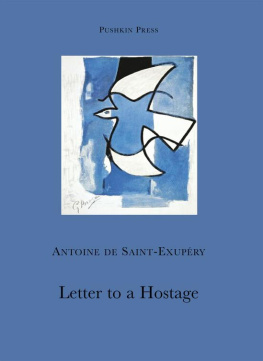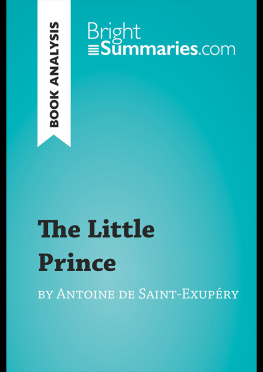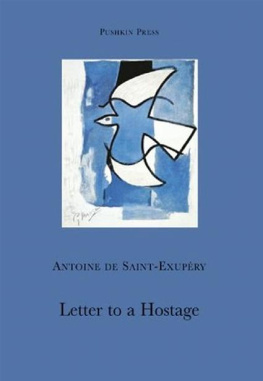For Peter George
Contents
W HEN, IN December 1940, I crossed Portugal on my way to the USA, Lisbon appeared to me as a vivid and sad paradise. At that time there was much talk of an imminent invasion, and Portugal clung to her elusive happiness. Lisbon, which had built up the most delightful exhibition, smiled a rather wan smile, like a mother who has not heard from her soldier son, and hopes to save him by her faith.
My sons alive, therefore I smile Look, said Lisbon, look how happy, how peaceful, how brilliant I am The whole Continent pressed upon Portugal like a wild mountain swarming with beasts of prey; Lisbon challenged Europe with her festivities: Can they possibly make me a target, when I am so careful not to conceal myself! When I am so vulnerable!
At home every town at night appeared like dying embers. There, I had forgotten the impression of a chink of light, and that dazzling city made me feel vaguely uneasy. A diamond in a shop window gleaming in the darkness attracts the wanderers. One can sense them prowling about. I felt pressing upon Lisbon the night of Europe, with her wandering groups of bombers, who seemed to have scented the treasures from afar.
But Portugal ignored the appetite of the beast. She refused to believe in evil forebodings. Portugal talked of arts with a desperate confidence. Who would dare to crush her in her worship of arts? She had displayed all her wonders. Who would dare to crush her in her wonders? She exhibited her great men. Lacking an army, lacking guns, she had raised against the armaments of the invader all her sentinels of stone: poets, explorers, conquerors. Instead of soldiers and guns, all the past of Portugal blocked the way. Who would dare to crush her in her inheritance of so great a past?
Thus every night I wandered with melancholy among the success of that delightful exhibition, where everything neared perfection, even the music, so discreet, so tactfully chosen, which gently glided over the gardens, smoothly like the plain song of a fountain. How could they destroy in the world that wonderful sense of measure?
But I found Lisbon, beneath her smile, grimmer than my dim cities. I have known, you also may have known, some of those particular families who reserved at their tables the seat of a dead relative. They denied the irreparable. But I did not think that that challenge could be of any consolation. The dead must be thought of as dead. Then they acquire in their role of death another kind of presence. But those families hindered their return. They made them absent for ever, late guests for eternity. They swapped their mourning for a vain hope. And those homes seemed to be plunged into an uneasiness far more overwhelming than grief. Pilot Guillaumet, the last friend I lost, was shot down on airmail service. Well I have accepted his death. Guillaumet will change no more. He will never be here again; neither will he be absent. I have sacrificed his place at my table, as a useless illusion, but in his death he remains my real friend.
But Portugal pretended to believe in happiness, keeping its coverings of lanterns and music. They played the game of happiness, in Lisbon, hoping that God himself would be taken in by it.
Lisbon owed her atmosphere of sadness to the presence of some refugees. I do not mean banished people looking for refuge, I do not mean immigrants in search of a ground to till, I mean those who fled away from the misery of their country to put their money in safety.
As I could not find any lodging in the town itself, I lived in Estoril, near the Casino. I had come from a concentrated war: my flying group, which for nine months had never stopped its raids on Germany, had also lost three-quarters of its crews during the German offensive.
Then, at home, I had experienced the grim atmosphere of slavery and the threat of starvation. I had lived in the thick darkness of our cities. And now, next door to me, every night, Estoril Casino was crowded with ghosts. Silent Cadillacs, pretending to go somewhere, deposited them on fine sand, at the entrance door. They had dressed up for supper, as of old. They showed off their tuxedos or their pearls. They had invited one another to a puppets feast, where there would be nothing to say.
Then, they played roulette or baccarat according to their means. I sometimes went and watched them. I felt neither indignant nor ironical, but vaguely uneasy. The same uneasiness which disturbs you at the zoo, when confronted by the survivors of an extinct species. They settled round the tables. They pressed one another close to a stern croupier, and did their best to create a feeling of hope, despair, fear, envy or jubilation. As though they were alive. They gambled with fortunes which perhaps at that very moment had lost their significance. They used an obsolete currency. The contents of their safes were perhaps guaranteed by factories already confiscated, or, threatened by flying bombs, on their way to destruction. They drew bills on Sirius. Resuming their past, as if nothing had started crackling on the earth, they tried to believe in the justification of their excitement, in the covering of their cheques, in the eternity of their conventions. It was unreal. It looked like a puppets ballet. But it was sad.
They obviously had no feeling. I left them. I went to take a breath of fresh air on the seashore. And the sea of Estoril, that sea-spa, that tamed ocean, also seemed to join in the game. It pushed into the gulf a single wave, sparkling with the moonlight, like an evening gown out of place.
I met these same refugees on the ship. This ship also exhaled a slight uneasiness. This ship transferred those rootless plants from one continent to the other.
I thought: I do not mind being a voyager, but I do not want to be an immigrant. I have learnt at home so many things that would be useless elsewhere. But they were my emigrants, taking their little address books out of their pockets, scraps of identity. They still played at being someone. They clung with all their strength to some kind of significance. You know, I am so and so I came from such and such a place I am a friend of so and so Do you know so and so? And they told you the story of a pal, or the story of a responsibility, or the story of a mistake, or any other story which could link them to anything. But none of that past was going to be of any use now that they were emigrating. It was still warm and fresh, and living, just as recent memories of a love affair. Pack up affectionate letters, add a few memories, tie them up with great care: the relic first develops a melancholic charm. Then a fair young lady with blue eyes passes by, and the relic dies. So the friend and the responsibility, the native land and the home memories fade away when they are no longer used.
They sensed that. But as Lisbon played at happiness, they played at believing that they would soon return. How easy is the absence of a prodigal son! It is a false absence, for, behind him, his home remains. It makes no difference whether you are absent in the next room, or on the other side of the earth. The presence of a friend who has apparently gone away may become more intense than an actual presence. It is the presence of prayer. I never loved my home better than when I was in the Sahara. No lovers have ever been nearer their loved ones than the Breton sailors of the sixteenth century when they rounded Cape Horn and grew old against the barrier of unfavourable winds. They had no sooner gone than they had started to come back. Their heavy hands prepared for their return as they hauled out the sails. The shortest way from the harbour of Brittany to the home of their fiances passed by Cape Horn. But my emigrants appeared to me like those Breton sailors bereft of their fiances. Nevermore would any Breton girl light up for them a humble lamp at the window. They were not prodigal sons. They were prodigal sons without a home awaiting their return. Then begins the real journey which is beyond oneself.










